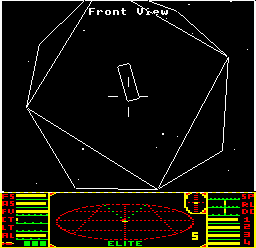So it’s great to see that more primary schools are meeting their targets. I love the way the BBC headline is phrased: “Fewer primary schools fail to meet their target.” Hooray: we have less failure. It shows what a glass-half-empty culture we’re in at the moment in education. We could so easily have said – Hooray: more success!
So I could go on about this over-negativity I suppose. Or I could make the ironic link between this and what Michael Gove said yesterday. Today the DoE tells us that: “Heads, teachers and pupils deserve credit for meeting the challenge head on”. Yesterday Michael Gove wrote to schools criticising an admittedly small minority of teachers for having a detrimental effect on their schools through working to rule.
However what I want to draw attention to is that today’s headlines come at a time when I believe we have an over-supportive assessment system in this country. Some people have pointed the finger at how the system has been geared to judge the school and not the pupil. Others have expressed their fears that our system is being ‘gamed’ – teachers and school leaders are ‘playing the game’ to make their schools look good, without actually doing the job of raising standards through good teaching. A helpful way of looking at this may be David Weston’s hastily but well-drawn graph of the continuum between teaching and cheating. Or you just might say that actually we’re all cheating.
You see, the BBC say: “The results are based on the national tests children in all state schools take in their final year of primary school.” But they don’t say that these tests are entirely self-invigilated. Unfortunately the phrase ‘national test’ distracts us from the fact that schools can sit their students with as many support staff as they want, in whatever group size they want, and nobody but the staff in the school watch them do it.
Yes there are one or two ‘invigilators’ that Local Authorities send out to schools on random monitoring visits, but they are so few and far between that school can pretty much guarantee that they won’t be there on the crucial day.
And who benefits from these tests being, shall we say, over-supportive? Schools do. When we read from the DfE:
“Schools with a long history of underperformance, and who are not stepping up to the mark, face being taken over by an Academy sponsor…”
we begin to get get a hint of the intense pressure that schools are under. Headteachers and Governors are replaced in this process. Poor SATs results can trigger an Ofsted inspection bringing more pressure onto teachers. Surely if we just give one or two suggestions to those border-line children just to tip them over onto the right side of the grade boundary it won’t matter? Will it?
The problem with this approach is that it sucks the independence out of children. No matter what their ability these children expect the same level of support as they go into secondary school. Then to achieve their own progress measures, the secondary schools are under the same pressure as primary schools to ‘tweak’ their GCSE results just that little bit. And all along our students are losing their independence. We are creating a generation of exam zombies – education consumers who expect education to be done to them, not to be active participants.
Ever wondered why they need so many plagiarism checkers at universities these days? It’s not just the ease of access to online material – it is also the fact that our students expect to be supported. They do not expect to think for themselves. It is not a ‘thinking skills curriculum’ that fixes this. It is a rigorous, well-invigilated exam system that demands students think for themselves.
So unfortunately, even though I’d like to be glass-half-full about today’s announcement, celebrating with the many primary schools that, like mine, are now above the floor targets, all I can think of is the increasing amount of learners who will need support to hit their inflated targets throughout the rest of their education. It weakens us as an education system and it weakens us as a society, even though it might look good in the short term.
 In 1992 I was working for an engineering company. It was my scheduled summer work for the company that were sponsoring me through university. One day a colleague called me over and showed me this amazing thing on his computer.
In 1992 I was working for an engineering company. It was my scheduled summer work for the company that were sponsoring me through university. One day a colleague called me over and showed me this amazing thing on his computer.


 My friend Dave introduced me to Dungeons and Dragons when I was twelve. We played it at school, during lunchtimes, and I loved it.
My friend Dave introduced me to Dungeons and Dragons when I was twelve. We played it at school, during lunchtimes, and I loved it.